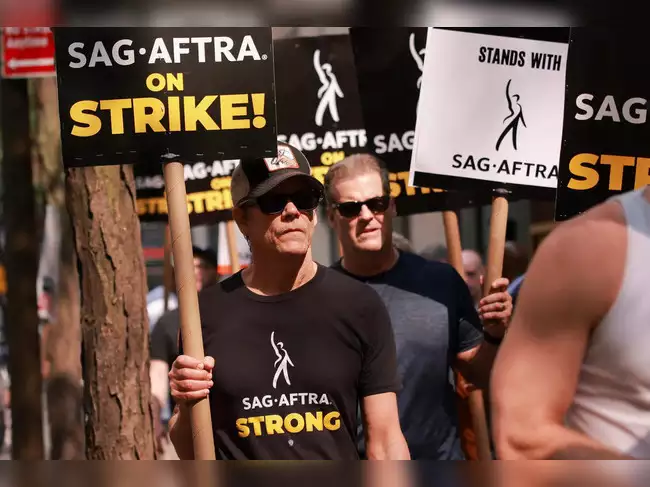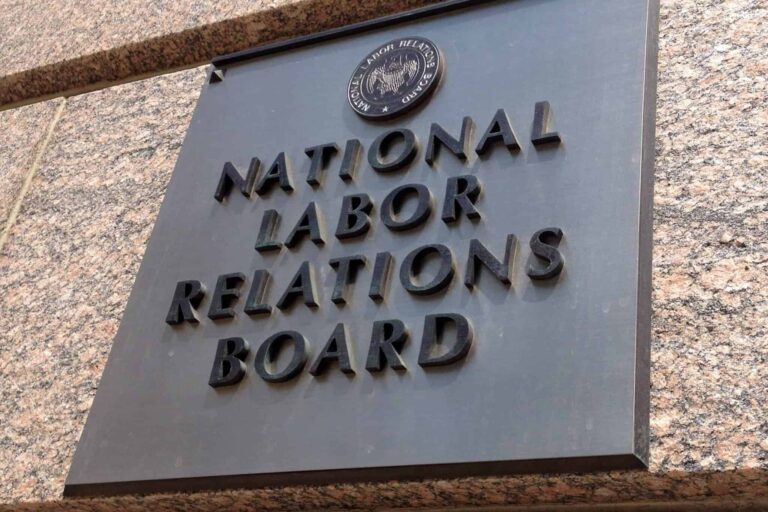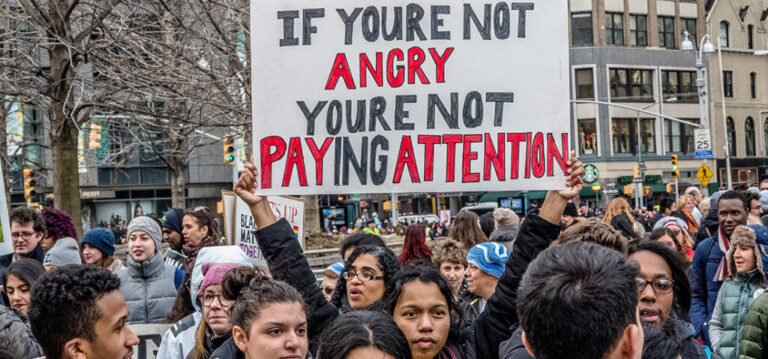
Sharon Block is a Professor of Practice and the Executive Director of the Center for Labor and a Just Economy at Harvard Law School.
Recent events in Charlottesville have shaken the nation. I don’t think many predicted that in 2017 we would need a national conversation about growing fascism in our country and the role of the President of the United States in fostering it. If there was any label that Americans – both Democrats and Republicans — could agree was opprobrious, I had thought it was fascist. But, here we find ourselves, being rightly lectured by world leaders, the United Nations, and the civil rights community across our own country that we need to get a handle on the inescapable truth that the events of Charlottesville revealed — that we have a fascism problem in our country and that it is out of the shadows, made comfortable enough by our current president to march down our streets, loud and proud (and often violent).
The question that many of us have been asking since Election Day — “how did we get here” — has taken on greater urgency in the wake of Charlottesville. There has been much thoughtful writing and commenting on the root causes of this now evident phenomenon. I recently came across an article by Senator Robert Wagner, primary sponsor of our bedrock federal labor law, the National Labor Relations Act, that got me thinking about an unexplored possible contributing factor – whether there is a plausible relationship between the decline in the labor movement and the vulnerability of our population to fascism.
The framework of this argument was articulated by Senator Wagner in a May 1937 article in the New York Times Magazine. The NLRA had passed in July 1935 but questions about its future as a result of challenges to its constitutionality lingered until April 1937. As Senator Wagner was witnessing the rise of a fascist power, he described his ideal industrial state. One attribute of his ideal vision was a strong labor movement, bringing the experience of collective bargaining to the American working class.
In addition to the many economic arguments that Wagner made in defense of the NLRA was his argument that the process of being a member of a union and engaging in collective bargaining in the workplace gave Americans the experience of participating in a democratic process in a way that had become remote in their political life. He lamented that politics had been “impersonalized” and that the nature of the nation’s problems – too big, complex and fast-moving – made it difficult for ordinary Americans to get involved in addressing them. Thus, in his view, the workplace became the more likely venue for the “expression of the democratic impulse”.
Most interestingly for thinking about how to rebuild our “democratic impulses” in the Trump era, Wagner made the connection between this workplace practice of democracy and the protection of our national democracy from fascism. He said:
Let men become the servile pawns of their masters in the factories of the land and there will be destroyed the bone and sinew of resistance to political dictatorship. Fascism begins in industry, not in government. The seeds of communism are sown in industry, not in government. But let men know the dignity of freedom and self expression in their daily lives, and they will never bow to tyranny in any quarter of their national life.
Obviously, labor unions give workers the experience of the mechanics of democracy – they vote whether to be represented or not, they have a say in choosing leaders of the union and the policies they put forward, and they carry the responsibility of holding those leaders accountable. Those skills and experiences are all transferable to political democracy. In addition, a strong labor movement historically has played a direct role in our democratic process in supporting progressive candidates and policies.
But I think that Wagner was getting at something more salient as we think about how we got to where we are today – not just with white supremacists feeling emboldened, but also with an ascendant economic policy regime that serves the interests of the very few yet very powerful and ignores the equities of the many. He was talking about the importance of learning to speak truth to power and having the courage to stand together against political and economic bullies. The reality is that at the same time the labor movement has declined, the political and economic bullies increasingly have come to dominate our democracy.
Correlation is not causation and I cannot purport to have made a historical study of the relationship so I cannot profess to know that the decline of the labor movement has in fact contributed to the rise of American fascism and explains why it has taken so long for good people in our country, who still constitute the majority, to stand up to these dark forces. But as we catalog all that we have lost with the decline of the labor movement – fairer wages, a check on income inequality, a strong progressive political voice – we should consider Wagner’s warning that we also may have lost a necessary nurturer of our democratic impulse.









Daily News & Commentary
Start your day with our roundup of the latest labor developments. See all
April 18
Disneyland performers file petition for unionization and union elections begin at Volkswagen plant in Tennessee.
April 18
In today’s Tech@Work, a regulation-of-algorithms-in-hiring blitz: Mass. AG issues advisory clarifying how state laws apply to AI decisionmaking tools; and British union TUC launches campaign for new law to regulate the use of AI at work.
April 17
Southern governors oppose UAW organizing in their states; Florida bans local heat protections for workers; Google employees occupy company offices to protest contracts with the Israeli government
April 16
EEOC publishes final regulation implementing the Pregnant Workers Fairness Act, Volkswagen workers in Tennessee gear up for a union election, and the First Circuit revives the Whole Foods case over BLM masks.
April 15
The Supreme Court ruled in favor of bakery delivery drivers in an exemption from mandatory arbitration case; A Teamsters Local ends its 18-month strike by accepting settlement payments and agreeing to dissolve
April 14
SAG-AFTRA wins AI protections; DeSantis signs Florida bill preempting local employment regulation; NLRB judge says Whole Foods subpoenas violate federal labor law.